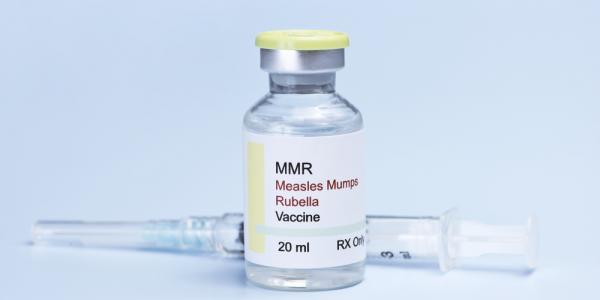Sinuses and Michigan

If you live in Michigan long enough, you will most likely become very familiar with “sinus infections”. The two seem to go “mitten in mitten.”
The fact is, what we commonly call a sinus infection are physical symptoms related to swelling of the lining in our nasal and sinus passages. As these airways become irritated by allergens or viruses our bodies respond by causing increased blood flow to this lining. As the blood flow increases, the lining swells causing a full feeling. Additionally the body increases the amount of mucus secreted by this lining. The mucus is actually part of our defense system, trapping viruses, bacteria, and allergens before they can travel to more vulnerable parts of our respiratory system.
Although these changes are protecting our health, they do become uncomfortable and sometimes painful. For some individuals the body's response is too aggressive, as in people with allergies. Prolonged swelling and mucus secretion can lead to a secondary bacterial sinus infection. This is actually much less common than most people think.
When these symptoms develop, consider helping the body along a path to recovery. In most cases these symptoms can be managed with simple over the counter treatments thereby avoiding a visit to the doctor’s office. Antibiotic treatment is usually not needed.
Consider one or more of the following:
- Saline nasal spray: These products are available over the counter in convenient spray bottles. They contain a simple salt water solution mixed to be comfortable for use so there is no stinging or burning. The salt solution helps to rinse the nasal passages of viruses and allergens while at the same time shrinking the lining of the nasal passages.
- Neti pots: Neti pots are small tea pot-looking devices which are filled with a comfortable salt water solution to rinse the nasal passages.The pot is filled with the prepared solution and then gently poured through each nostril providing a more thorough rinsing than the saline spray can provide.
- Nasal steroid sprays: If you regularly suffer from seasonal allergies, using a nasal steroid spray DAILY is often recommended. Steroid sprays like fluticasone (Flonase®) and triamcinolone (Nasacort®) are now available over the counter. These specific types of steroids work by reducing swelling locally in the nasal passages, and thereby avoiding the need for oral medications which will affect the entire body. The local action of the steroid spray will minimize the nasal congestion that occurs as a result of breathing in allergens such as grasses, pollens, dust and animal danders. Nasal steroid sprays are a preventive therapy meaning they must be used on a consistent daily basis to be effective. These sprays will NOT provide immediate relief from nasal congestion.
- Antihistamines: Antihistamine medications help relieve allergy symptoms such as watery eyes, runny nose, itching eyes/nose, sneezing, hives, and itching. They work by blocking “histamine”, a compound that the body makes during an allergic reaction. Many antihistamines, such as diphenhydramine (Benadryl®), can be sedating. However, there are “non-sedating” forms available over the counter. The generic names are cetirizine (Zyrtec®), Claritin (Loratadine ®) and fexofenadine (Allegra®). Despite the “non-drowsy” formulation, some individuals may still feel sleepy on these medications, so always avoid driving or operating machinery while using these medications until you know how the medications effects you individually.
- Nasal decongestants tablets and sprays: Decongestants help relieve nasal congestion associated with upper respiratory infections and allergies.They work by constricting the small blood vessels in the nasal passages that normally contribute to nasal swelling. These medications are available in both oral and nasal spray forms. The nasal spray decongestants containing oxymetazoline (Afrin)® are very effective working almost instantly in a near magical fashion. However, there use must be limited to 3 days duration only. If used for too long, the nasal lining can become “addicted” to the spray causing the user to need the spray more frequently to breathe freely through the nose. This condition is known as “rhinitis medicamentosa” and can be difficult to correct.
The oral decongestant medications such as pseudoephedrine (Sudafed ®) work through the blood stream rather than locally and do not have “addictive" potential however, the oral form can increase blood pressure and can cause some to feel wide awake and jittery. Always check with your healthcare provider to be certain that you are able to tolerate oral decongestant use.
Proper use of these medications can help manage the uncomfortable symptoms of viral upper respiratory infections (colds), seasonal allergies or allergic rhinitis and support your body as it does its own magic to restore your to optimum health.
Discuss these interventions with your primary health care provider to determine which treatments are appropriate for you. The recommendations may vary based on your individual symptoms, other medications you take, medical history, and age.
As always, maintain these simple daily lifestyle actions to protect your health.
- Wash your hands often after coughing sneezing and before eating.
- Drink plenty of fluids. Good hydration helps all body systems function at their best.
- Rest… adequate sleep is important to keep the immune system strong and allow your body to fight off infection.
- Exercise. Regular exercise boosts the immune system and its ability to fight infection. The level and intensity of exercise may have to decrease during times of illness.
With a little help, you’ll be “High fivin’ life in the Mitten”!
Related Articles
.png)
Human Papillomavirus and Cancer
Regardless of your personal stance on vaccines, many people wonder why some vaccines are recommended or used. This article reviews Human Papillomavirus, the diseases it can cause, and reasoning behind considering this vaccine.



Belly Breathing for Better Health
Practice Belly breathing to help treat GastroEsophageal Reflux Disease (GERD).





